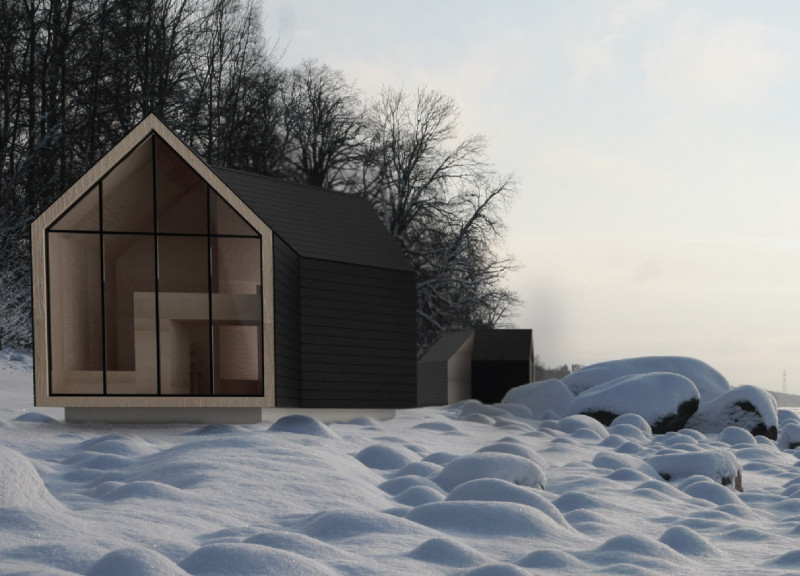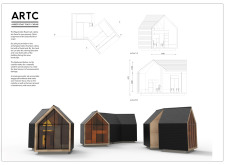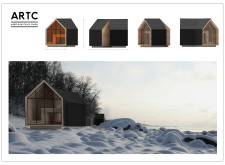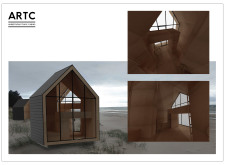5 key facts about this project
The primary function of the Amber Road Track Cabins is to serve as accommodation for individuals seeking a peaceful escape from the hustle and bustle of everyday life. Each cabin is thoughtfully designed to accommodate both communal and individual experiences, allowing for personal reflection in a serene setting. The architectural layout ensures that occupants can enjoy privacy while still being part of a larger community, facilitating social interaction and connectedness among guests.
Within the project, several important design elements stand out. The cabins feature a distinctive geometric form, characterized by gabled roofs that echo the traditional architecture of the region, while simultaneously presenting a contemporary interpretation. This approach not only honors the local heritage but also enhances the overall aesthetic appeal of the project. The use of blackened timber for the exterior cladding provides both durability and a visually cohesive look, while large expanses of glass seamlessly integrate indoor and outdoor spaces.
The careful consideration of material selection plays an essential role in the overall design. The blackened timber cladding works in harmony with warm plywood interiors, creating a balance between robustness and comfort. The natural textures of these materials invite occupants to feel at home and at one with the warm environment. Large windows and sliding glass doors enhance the connection to nature, allowing natural light to fill the interiors and offering views of the scenic landscape that surrounds the cabins.
Another notable aspect of this architectural project is its emphasis on sustainability. The design champions ecological responsibility by sourcing local materials and employing traditional construction techniques. This helps minimize the environmental footprint while supporting the local economy. Additionally, the orientation of the cabins takes full advantage of the site’s natural topography, ensuring that they blend seamlessly into the landscape while maximizing views and natural ventilation.
Unique design approaches are evident in the architectural organization of the cabins, which are strategically placed to create a sense of community without compromising individual privacy. This arrangement fosters social interaction, allowing guests to enjoy shared spaces while retreating to personal areas when desired. The design incorporates multi-functional elements that maximize utility within limited square footage, showcasing a keen understanding of spatial efficiency.
Overall, the Amber Road Track Cabins project exemplifies a successful integration of architecture, nature, and community. Its thoughtful approach to design stands as a reminder of the importance of context in architectural endeavors. For those interested in exploring this project more deeply, including detailed architectural plans, sections, and ideas, the presentation provides further insights into the design principles and intentions behind the Amber Road Track Cabins.

























